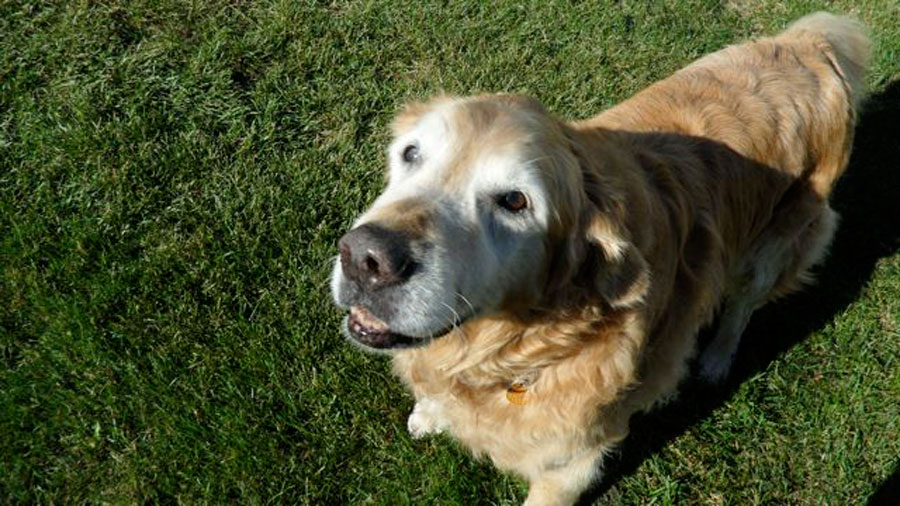When it comes to training, the old dogs of Dubuque have still got it!

“Blessed is the person who has earned the love of an old dog” ~ Sydney Jeanne Seward
We can’t help but have a special place in our hearts for older dogs. We’ve been in the dog training and boarding business for a while so we’ve watched snuggly pups grow into rambunctious youngsters, transition into dignified adults and then mellow into gentle seniors. We are always pleased to see our senior citizens come back to visit. This sweet boy has been coming to stay with us for 13 years.
Senior dogs require much of the same care and attention as young or adult dogs.
Things like good nutrition, adequate exercise and a structured routine are important to the health and well being of all dogs, regardless of their age.
But there are a few things to pay attention to with your older dog.
Watch for changes in flexibility as your dog is getting older. Does Fido have difficulty getting into the car, getting up, laying down or climbing stairs? Dog’s, especially large breed dogs can suffer from arthritis just as humans can. Check with your veterinarian for possible medications that could ease discomfort.
Many dogs experience reduced hearing as they age. Watch for signs that your dog is not hearing as well as he used to (this is different than selective hearing!) If you’re dog is more difficult to wake, does not hear you or is startled by your approach these are generally signs of hearing loss. Take care to keep your dog safe in environments where he may not hear approaching cars, etc. Even if your dog is young now, cross train him with hand signals (as well as verbal commands) so you can use them later in life to communicate.
Periodontal disease is common in older dogs. Because poor oral hygiene can lead to more complicated health problems down the road so it is important to keep your dog’s teeth brushed with an animal approved toothpaste. Also watch for any signs that your dog is not eating well and follow the advice of your veterinarian regarding dental cleanings or teeth that need to be extracted.
Slowing down can lead to weight gain, so really watch your dog’s waistline. Obesity can lead to a myriad of health problems and decreased quality of life. Keep a regular exercise routine of walking with your dog and consider a possible food change. There are a variety of high quality senior diets on the market so do a bit of research to see if there is something that may be more appropriate for your older dog.
Just because your dog may be slowing down does not mean he can’t learn new tricks. The mental challenges of learning new things, conquering new toys or finding new places to explore are just as exciting as they were to him when he was younger. Spend some time together and enjoy those special moments together.
woof!

